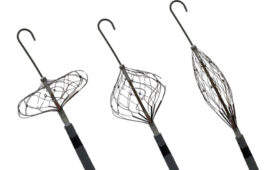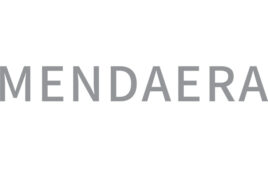 Agendia, a world leader in personalized medicine and molecular cancer diagnostics, highlights new data on its gold-standard MammaPrint 70-Gene Breast Cancer Recurrence Assay and BluePrint 80-Gene Molecular Subtyping Assay, from three studies presented at the San Antonio Breast Cancer Symposium last week.
Agendia, a world leader in personalized medicine and molecular cancer diagnostics, highlights new data on its gold-standard MammaPrint 70-Gene Breast Cancer Recurrence Assay and BluePrint 80-Gene Molecular Subtyping Assay, from three studies presented at the San Antonio Breast Cancer Symposium last week.
Researchers from the University of South Florida Morsani College of Medicine reported long-term follow-up data observing 148 patients who were tested with MammaPrint, Genomic Health’s Oncotype DX and Clarient’s MammaStrat. The study concluded that the different gene expression-based breast cancer recurrence tests showed discordant results, with only MammaPrint providing a definitive low- or high-risk outcome. MammaPrint also correctly reassigned a low- or high-risk result to intermediate Oncotype DX risk scores. The Agendia test was also the best predictor of distant cancer recurrence on identifying 85% of the 13 patients who either died or suffered a distant metastasis as high risk, compared to 54% for Oncotype DX and 62% for Mammostrat.
The Multi Institutional Neo Adjuvant Therapy MammaPrint Project (MINT) trial demonstrated the predictive value of MammaPrint in further stratifying 183 patients classified as at high-risk of their cancer recurring into High1 or High2 risk classes. Coupled with BluePrint, the study found that these MammaPrint high-risk sub-groups together could help predict the benefit of chemotherapy.
The third presentation, a sub-study of the international, prospective, phase III MINDACT trial, published in Aug., compared molecular subtyping using BluePrint to pathological classification. Molecular subgroups within early-stage breast cancer (such as Luminal A, Luminal B, HER2+, Basel-like) may help to best identify patients for specific treatment approaches. A key conclusion was that molecular subtyping using BluePrint was able to re-stratify 16% of patients, originally classified pathologically high-risk, to a low-risk Luminal A-type group, with excellent survival. The study suggests that molecular subtyping by BluePrint is better correlated with outcome than pathological classification.
The MINDACT trial, which was published in the New England Journal of Medicine, is a unique phase III prospective, randomized, controlled study that provides the highest level of clinical evidence to MammaPrint, above any other genomic assay, for making adjuvant chemotherapy decisions in early-stage breast cancer. It included almost 7,000 patients, across 112 institutions in nine different European countries.
Agendia
agendia.com




